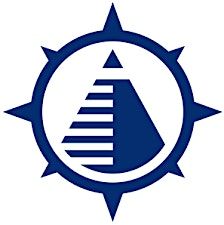Disadvantaged Business Enterprise Workshop
Schedule
Thu Oct 27 2022 at 05:00 pm to 09:00 pm
Location
2712 S Bay St | Pine Bluff, AR

About this Event
The U.S. Department of Transportation's DBE (disadvantaged business enterprise) program provides a vehicle for increasing the participation by MBEs in state and local procurement. DOT DBE regulations require state and local transportation agencies that receive DOT financial assistance, to establish goals for the participation of DBEs. Each DOT-assisted State and local transportation agency is required to establish annual DBE goals, and review the scopes of anticipated large prime contracts throughout the year and establish contract-specific DBE subcontracting goals. Along with the OSDBU, the Departmental Office of Civil Rights, and the Office of the General Counsel; there are three major DOT operating administrations are involved in the DBE program. They are the Federal Highway Administration, the Federal Aviation Administration and the Federal Transit Administration.
In addition to establishing goals, state and local recipients also certify the eligibility of DBE firms to participate in DOT-assisted projects. Some groups are presumed to be socially and economically disadvantaged for the purposes of participation in this program. In 1987 Congress added women to the groups presumed to be disadvantaged. The main objectives of the DBE Program are:
To ensure that small disadvantaged business enterprises (DBE) can compete fairly for federally funded transportation-related projects.
To ensure that only eligible firms participate as DBEs.
To assist DBE firms in competing outside the DBE Program.
There has been, since 1983, a statutory provision requiring DOT to ensure that at least 10% of the funds authorized for the highway and transit financial assistance programs be expended with DBEs. DOT has established a single DBE goal, encompassing both firms owned by women and minority group members.
To be certified as a DBE, a firm must be a small business owned and controlled by socially and economically disadvantaged individuals. Certifiers make the determinations based upon on-site visits, personal interviews, reviews of licenses, stock ownership, equipment, bonding capacity, work completed, resume of principal owners and financial capacity.
The Department of Transportation (DOT) is dedicated to serving our community, including those businesses contracting with state agencies and recipients of DOT funds. The Department's Disadvantaged Business Enterprise (DBE) program is designed to remedy ongoing discrimination and the continuing effects of past discrimination in federally-assisted highway, transit, airport, and highway safety financial assistance transportation contracting markets nationwide. The primary remedial goal and objective of the DBE program is to level the playing field by providing small businesses owned and controlled by socially and economically disadvantaged individuals a fair opportunity to compete for federally funded transportation contracts.
Background
DOT's Operating Administrations distribute substantial funds each year to finance construction projects initiated by state and local governments, public transit and airport agencies. DOT has the important responsibility of ensuring that firms competing for DOT-assisted contracts for these projects are not disadvantaged by unlawful discrimination. The Department’s most important tool for meeting this requirement has been its DBE program, which originally began in 1980 as a minority/women’s business enterprise program established by regulation under the authority of Title VI of the Civil Rights Act of 1964 and other nondiscrimination statutes that apply to DOT financial assistance programs.
The DBE program was reauthorized by Congress several times since its inception; most recently in the “Fixing America's Surface Transportation Act" or the ‘‘FAST-ACT,’’ (P.L. 114-94, December 4, 2015). Section 1101(b) of the Act describes Congress’s findings regarding the continued need for the DBE program due to the discrimination and related barriers that pose significant obstacles for minority and women-owned businesses seeking federally-assisted surface transportation work. The Act further provides, that, except to the extent the Secretary of Transportation determines otherwise, not less than 10% of the amounts made available for any program under Titles I, II, III and VI of the Act and 23 U.S. Code 403, shall be expended with DBEs.
To meet the stated 8 objectives of the DBE Program Regulation, recipients of DOT funds must develop and implement a DBE program that conforms to DOT standards set forth in 49 CFR Part 23 (for airport concessionaires) and 49 CFR Part 26. The integrity of DOT's DBE program depends upon systematic procedures to ensure that only bona fide small firms, owned and controlled by a socially and economically disadvantaged individual(s), are certified to participate as DBEs in DOT federally assisted programs. The DOT DBE Regulations 49 C.F.R. Part 23 and 49 C.F.R. Part 26 place primary responsibility for the certification process upon State Transportation Agencies.
Last updated: Friday, April 17, 2020

Where is it happening?
2712 S Bay St, 2712 South Bay Street, Pine Bluff, United StatesEvent Location & Nearby Stays:
USD 500.00
